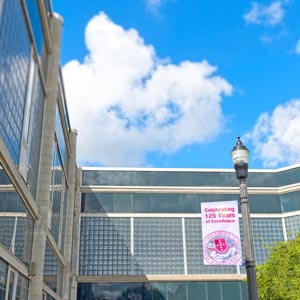Office of Student Disability Services
Florida Southern College Welcomes All Students Seeking to Further Their Education.
Accordingly, Florida Southern College prohibits discrimination against any qualified student with a disability. We invite students to visit Student Disability Services to discuss their use or need of accommodations and any barriers they anticipate or may be experiencing at FSC.
Process Overview
The college engages in an interactive process with the student and, as appropriate, with professionals documenting the disability and the student’s family. If you have a disability and would like to receive consideration for reasonable accommodations, written relevant documentation from a licensed physician, psychologist, or other qualified professional is ideal. A high school plan such as an IEP or 504 Plan may or may not be fully sufficient documentation, but can be helpful. Please use the Registration Process to request accommodations and submit required documentation.
Student Responsibilities
- Identify themselves, provide documentation and request reasonable accommodations in a timely manner.
- Once approved for accommodations, communicate with faculty about how the accommodations will be implemented in the classroom.
- Communicate with Student Disability Services in a timely manner should any issues with accommodations arise.
Sensory Spaces at Florida Southern College
Discover the Wright spaces at FSC—three inviting lounges designed for relaxation and comfort! The Wright Room (Rogers Building 217) offers a cozy atmosphere with lounge furniture and interactive features. The Wright Fit Zone (Edge Hall 112) is a relaxing retreat with comfy seating, ambient lighting, and free coffee. The newest addition, the Wright Team Lounge (Jenkins Field House 019), provides a calming space with study areas, fidgets, and yoga mats. Explore these welcoming spots and unwind in your perfect space!
Report Accessibility Issues
Have you encountered an accessibility issue on campus? Let us know, so we can fix it!
Questions? Contact
 Sandy Calvert, Ph.D.
Sandy Calvert, Ph.D.
Assistant Dean for Student Disability Services
Rogers Building - 244
863.680.4900 863.616.6468
